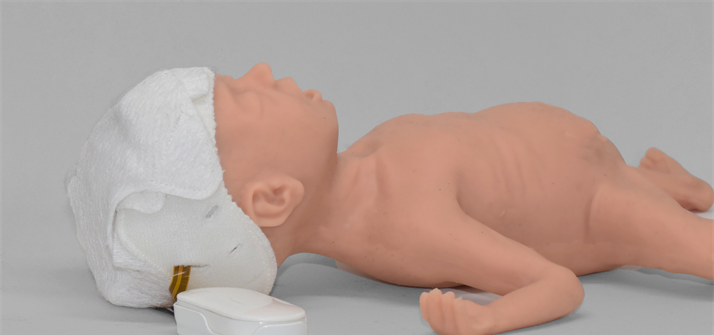SurePulse - neonatal heartrate monitoring

Around 80,000 babies born in the UK every year are in need of some form of resuscitation. Delay with resuscitation can increase the chance a baby may develop brain damage or die.
The best measure of the need for resuscitation, and how effective it is, is assessment of the newborn’s heart rate which is currently performed every 30 seconds with a stethoscope during the resuscitation process. However, this is subject to human error, delays the resuscitation and may fail to detect sudden problems.
Optical sensor allows continual measurements
The multidisciplinary team of Professor Barrie Hayes-Gill, Professor John Crowe, Professor Steve Morgan and Dr Mark Grubb (electrical engineers) in collaboration with academic neonatologist Dr Don Sharkey developed a small optical sensor which detects changes in reflected light and, when placed on the baby’s head, detects the baby's pulse.
The sensor has been developed and is being commercialised as Surepulse Medical, a joint venture business between The University of Nottingham and Tioga Ltd, an electronics manufacturing company with an international reputation.
Effective clinical decisions
The idea behind the Surepulse sensor is to allow doctors and midwives to continue resuscitating the baby without the need for frequent pauses to check the heart rate thus ensuring smoother and quicker resuscitation reducing the risk of long-term damage.
The wireless sensor sits in a specially designed single-use hat on the baby’s forehead, and transmits signals to a wireless display. All components can integrate seamlessly into the current care pathway. SurePulse provides continuous, hands-free accurate monitoring; enabling medical staff to make fast, confident decisions and focus on performing procedures in time-critical situations.
Accurate, rapid measurements benefit clinical staff by enabling them to make confident decisions more quickly and to focus on performing procedures in time critical situations. SurePulse may help reduce the time patients spend in neonatal intensive care and reduce costs for healthcare organisations.
www.surepulsemedical.com